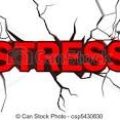
Anatomy of a Habit
A habit is an automatic behavioral pattern that occurs in response to a situation where a particular behavior has been performed repeatedly and consistently (Lally 2010) In his book The Power of Habit, Charles Duhigg explains that habit is more than repetitive behavior rather, it’s a construction of three sequential components that make up the habit loop. Those behaviors are the cue, the behavior, and the reward.
- Cue– an environmental or internal trigger that provokes us to learn a behavior. For example, when you start your car you hear chimes. The chimes (the trigger) are signals to put on your seatbelt (the behavior) Music could be a cue for the IPP or sounding some kind of alarm, setting the alarm on your phone or just someone taking the time to prompt with a shout etc…
- The Behavior- is the actual routine we commonly think of as the habit. This learned behavior occurs automatically, free from specific goal or task. Our IPP is the behavior
- Reward- or incentive makes behavior stick. For example, a runner goes out and runs because the reward is the “runners high” that he or she feels after the behavior. It is enough to make them repeat the behavior. The same can be true with our IPP, you WILL feel more alert, more energy, and your mood will elevate after you have performed the IPP. This is the immediate reward, the long term rewards are far greater. A reduction in injuries (of course), a reduction in chronic disease which includes lower blood pressure, type 2 diabetes prevention, lower cholesterol, improved symptoms of arthritis, reduction in depression and anxiety, reduced cancer risk, reduced risk of heart attack and stroke and much more!!! Always keep your “why” (grandchildren, children, spouse, good quality of life) in the forefront of your mind as well. That will prove to be your motivation on days that you are unmotivated and your brain will remember the “feel good” response after the behavior has been repeated day after day
A habit becomes so automated that your brain uses minimum energy to recreate the behavior.
The more habitual a behavior is, the more it becomes ingrained in the brain to the point where it never leaves







A habit becomes so automated that your brain uses minimum energy to recreate the behavior. Like it !!
Thanks Timothy, Hope you are well